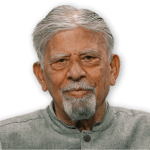• Identify the role of the government in defining and implementing policy
• Recognise the objective aspects and appreciate the humanistic aspects of policymaking
• Analyse the steps involved in policymaking, and discuss the nuances and challenges in defining and implementing it
Enrolments
Coursera Rated
Here’s what those who took the course have to say!
Course Modules
Introduction to The Art and Science of Economic Policy (TASEP)
Module 1 | 1 hour to complete
Get an overview of what to expect from this course; meet your instructors and get an opportunity to meet your fellow learners. This module will help you familiarise yourself with the course and its contents so you are prepared to learn most effectively from the following set of modules.
What’s included – 2 videos | 3 readings
The Foundations of Policymaking
Module 2 | 3 hours to complete
This module introduces you to the foundational concepts surrounding governance. Reflect on questions such as why we need a government, what its duties and responsibilities are; and look at examples from the past where governments have faltered, its reasons, and the possible solutions.
What’s included: 5 videos |10 readings | 1 quiz
The Science of Economic Policymaking
Module 3 | 3 hours to complete
This module introduces you to objective concepts and principles relating to policymaking that can help with decision making – behavioural economics, pricing, competition, and root cause analysis. These concepts are supported with strong relevant examples to aid your understanding.
What’s included: 9 videos | 11 readings | 1 quiz
The Art of Economic Policymaking
Module 4 | 3 hours to complete
The ideas and concepts discussed in this module are more subjective, looking at policymaking from the people or society perspective. It helps to understand context, find value in patience, appreciate nuances of complexity and conflict, and know the power of transparency.
What’s included: 9 videos | 9 readings | 1 quiz
Implementation of Economic Policy
Module 5 | 2 hours to complete
This module introduces you to the different stages and processes of policymaking. Learn about, and in discussion forums, exchange ideas on the need for the state to prepare for policy implementation and the benefits of creating collaborative pathways between government and academic institutions.
What’s included: 5 videos | 7 readings | 2 quizzes
Conclusion: The Art and Science of Economic Policy
Module 6 | 23 minutes to complete
In the concluding video, we round up the ideas discussed in this course and each of the instructors share their parting notes on how you can translate concepts from this course into your own practice.
What’s included: 1 video
Course Instructors

Dr. Vijay L Kelkar
Former Finance Secretary, Chairman of
the 13th Finance Commission of India

Ajay N Shah
Former Consultant at the Department of Economic Affairs, Ministry of Finance

Aromar Revi
Founding Director,
Indian Institute for Human Settlements




